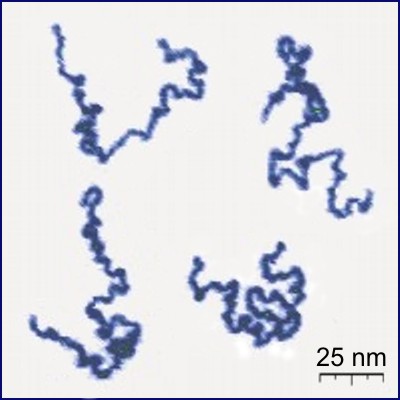|
Jennifer Garden
Jennifer "Jenni" A. Garden is a UKRI Future Leaders Fellow in the Department of Chemistry at the University of Edinburgh, where she leads a research group investigating how catalyst design and organometallic chemistry can be used to develop sustainable and degradable plastics using renewable sources. Early life and education Garden carried out her undergraduate studies in chemistry at the University of Strathclyde, obtaining a Master of Science in 2010. She was awarded the Andersonian Centenary Medal Prize for most outstanding final-year chemistry student. She continued at the University of Strathclyde for her doctoral studies in chemistry, investigating the development of new zinc and zincate complexes for applications in metallation reactions and obtaining her PhD in 2014. She was awarded the Hamilton-Barret Prize for her first-year PhD research (2011), and the Ritchie Chemistry Prize for best PhD thesis (2015). Research career Garden joined the Department of Chemistry ... [...More Info...] [...Related Items...] OR: [Wikipedia] [Google] [Baidu] |
Catalysis
Catalysis () is the process of increasing the rate of a chemical reaction by adding a substance known as a catalyst (). Catalysts are not consumed in the reaction and remain unchanged after it. If the reaction is rapid and the catalyst recycles quickly, very small amounts of catalyst often suffice; mixing, surface area, and temperature are important factors in reaction rate. Catalysts generally react with one or more reactants to form intermediates that subsequently give the final reaction product, in the process of regenerating the catalyst. Catalysis may be classified as either homogeneous, whose components are dispersed in the same phase (usually gaseous or liquid) as the reactant, or heterogeneous, whose components are not in the same phase. Enzymes and other biocatalysts are often considered as a third category. Catalysis is ubiquitous in chemical industry of all kinds. Estimates are that 90% of all commercially produced chemical products involve catalysts at some s ... [...More Info...] [...Related Items...] OR: [Wikipedia] [Google] [Baidu] |
Christina Miller
Christina Cruikshank Miller FRSE (29 August 1899 – 16 July 2001) was a Scottish chemist and one of the first five women (also the first female chemist) elected to the Royal Society of Edinburgh (7 March 1949). Christina Miller was deaf from childhood and also lost the sight of one eye in a laboratory explosion in 1930. The Christina Miller Building within Edinburgh University's Kings Buildings is named in her honour, as is Christina Miller Hall at Heriot-Watt University. Early life Christina Cruikshank Miller (Chrissie Miller) was born in 1899 in Coatbridge, Scotland to a stationmaster and was the eldest of two sisters. She suffered from measles and rubella at the age of five, causing her hearing to become damaged which became progressively worse throughout her life. Christina became interested in studying chemistry after reading a magazine article which showed industrial analytical chemistry as a potential career choice for women. Originally she had hopes to pursue a career in ... [...More Info...] [...Related Items...] OR: [Wikipedia] [Google] [Baidu] |
British Women Chemists
British may refer to: Peoples, culture, and language * British people, nationals or natives of the United Kingdom, British Overseas Territories, and Crown Dependencies. ** Britishness, the British identity and common culture * British English, the English language as spoken and written in the United Kingdom or, more broadly, throughout the British Isles * Celtic Britons, an ancient ethno-linguistic group * Brittonic languages, a branch of the Insular Celtic language family (formerly called British) ** Common Brittonic, an ancient language Other uses *''Brit(ish)'', a 2018 memoir by Afua Hirsch *People or things associated with: ** Great Britain, an island ** United Kingdom, a sovereign state ** Kingdom of Great Britain (1707–1800) ** United Kingdom of Great Britain and Ireland (1801–1922) See also * Terminology of the British Isles * Alternative names for the British * English (other) * Britannic (other) * British Isles * Brit (other) * Briton (d ... [...More Info...] [...Related Items...] OR: [Wikipedia] [Google] [Baidu] |
British Chemists
British may refer to: Peoples, culture, and language * British people, nationals or natives of the United Kingdom, British Overseas Territories, and Crown Dependencies. ** Britishness, the British identity and common culture * British English, the English language as spoken and written in the United Kingdom or, more broadly, throughout the British Isles * Celtic Britons, an ancient ethno-linguistic group * Brittonic languages, a branch of the Insular Celtic language family (formerly called British) ** Common Brittonic, an ancient language Other uses *''Brit(ish)'', a 2018 memoir by Afua Hirsch *People or things associated with: ** Great Britain, an island ** United Kingdom, a sovereign state ** Kingdom of Great Britain (1707–1800) ** United Kingdom of Great Britain and Ireland (1801–1922) See also * Terminology of the British Isles * Alternative names for the British * English (other) * Britannic (other) * British Isles * Brit (other) * Briton (d ... [...More Info...] [...Related Items...] OR: [Wikipedia] [Google] [Baidu] |
Polymer Scientists And Engineers
A polymer (; Greek ''wikt:poly-, poly-'', "many" + ''wikt:-mer, -mer'', "part") is a Chemical substance, substance or material consisting of very large molecules called macromolecules, composed of many Repeat unit, repeating subunits. Due to their broad spectrum of properties, both synthetic and natural polymers play essential and ubiquitous roles in everyday life. Polymers range from familiar synthetic plastics such as polystyrene to natural biopolymers such as DNA and proteins that are fundamental to biological structure and function. Polymers, both natural and synthetic, are created via polymerization of many small molecules, known as monomers. Their consequently large molecular mass, relative to small molecule compound (chemistry), compounds, produces unique physical property, physical properties including toughness, high rubber elasticity, elasticity, viscoelasticity, and a tendency to form glass, amorphous and crystallization of polymers, semicrystalline structures rather ... [...More Info...] [...Related Items...] OR: [Wikipedia] [Google] [Baidu] |
Academics Of The University Of Edinburgh
An academy (Attic Greek: Ἀκαδήμεια; Koine Greek Ἀκαδημία) is an institution of secondary or tertiary higher learning (and generally also research or honorary membership). The name traces back to Plato's school of philosophy, founded approximately 385 BC at Akademia, a sanctuary of Athena, the goddess of wisdom and skill, north of Athens, Greece. Etymology The word comes from the ''Academy'' in ancient Greece, which derives from the Athenian hero, ''Akademos''. Outside the city walls of Athens, the gymnasium was made famous by Plato as a center of learning. The sacred space, dedicated to the goddess of wisdom, Athena, had formerly been an olive grove, hence the expression "the groves of Academe". In these gardens, the philosopher Plato conversed with followers. Plato developed his sessions into a method of teaching philosophy and in 387 BC, established what is known today as the Old Academy. By extension, ''academia'' has come to mean the accumulation, d ... [...More Info...] [...Related Items...] OR: [Wikipedia] [Google] [Baidu] |
Alumni Of The University Of Strathclyde
Alumni (singular: alumnus (masculine) or alumna (feminine)) are former students of a school, college, or university who have either attended or graduated in some fashion from the institution. The feminine plural alumnae is sometimes used for groups of women. The word is Latin and means "one who is being (or has been) nourished". The term is not synonymous with "graduate"; one can be an alumnus without graduating (Burt Reynolds, alumnus but not graduate of Florida State, is an example). The term is sometimes used to refer to a former employee or member of an organization, contributor, or inmate. Etymology The Latin noun ''alumnus'' means "foster son" or "pupil". It is derived from PIE ''*h₂el-'' (grow, nourish), and it is a variant of the Latin verb ''alere'' "to nourish".Merriam-Webster: alumnus .. Separate, but from the s ... [...More Info...] [...Related Items...] OR: [Wikipedia] [Google] [Baidu] |
Living People
Related categories * :Year of birth missing (living people) / :Year of birth unknown * :Date of birth missing (living people) / :Date of birth unknown * :Place of birth missing (living people) / :Place of birth unknown * :Year of death missing / :Year of death unknown * :Date of death missing / :Date of death unknown * :Place of death missing / :Place of death unknown * :Missing middle or first names See also * :Dead people * :Template:L, which generates this category or death years, and birth year and sort keys. : {{DEFAULTSORT:Living people 21st-century people People by status ... [...More Info...] [...Related Items...] OR: [Wikipedia] [Google] [Baidu] |
Sir Edward Frankland
Sir Edward Frankland, (18 January 18259 August 1899) was an English chemist. He was one of the originators of organometallic chemistry and introduced the concept of combining power or valence. An expert in water quality and analysis, he was a member of the second royal commission on the pollution of rivers, and studied London's water quality for decades. He also studied luminous flames and the effects of atmospheric pressure on dense ignited gas, and was one of the discoverers of helium. Biography Edward Frankland was born in Catterall, Lancashire and baptised at Churchtown, Lancashire on 20 February 1825. As his baptismal record shows, his birth was illegitimate. His mother, Margaret "Peggy" Frankland, later married William Helm, a Lancaster cabinet-maker. "His illegitimacy cast a shadow over all his life since he was pledged to silence as to the identity of his natural father, though a handsome annuity was paid to his mother". From age 3 to 8 Edward lived and was edu ... [...More Info...] [...Related Items...] OR: [Wikipedia] [Google] [Baidu] |
Macromolecules (journal)
''Macromolecules'' is a peer-reviewed scientific journal that has been published since 1968 by the American Chemical Society. Initially published bimonthly, it became monthly in 1983 and then, in 1990, biweekly. ''Macromolecules'' is abstracted and indexed in Scopus, EBSCOhost, PubMed, Web of Science, and SwetsWise. The editor-in-chief An editor-in-chief (EIC), also known as lead editor or chief editor, is a publication's editorial leader who has final responsibility for its operations and policies. The highest-ranking editor of a publication may also be titled editor, managing ... is Marc A. Hillmyer. Its first editor was Dr. Field H. Winslow. References External links * {{DEFAULTSORT:Macromolecules (Journal) American Chemical Society academic journals Bimonthly journals English-language journals Publications established in 1968 Polymer chemistry ... [...More Info...] [...Related Items...] OR: [Wikipedia] [Google] [Baidu] |
American Chemical Society
The American Chemical Society (ACS) is a scientific society based in the United States that supports scientific inquiry in the field of chemistry. Founded in 1876 at New York University, the ACS currently has more than 155,000 members at all degree levels and in all fields of chemistry, chemical engineering, and related fields. It is one of the world's largest scientific societies by membership. The ACS is a 501(c) organization, 501(c)(3) non-profit organization and holds a congressional charter under Title 36 of the United States Code. Its headquarters are located in Washington, D.C., and it has a large concentration of staff in Columbus, Ohio. The ACS is a leading source of scientific information through its peer-reviewed scientific journals, national conferences, and the Chemical Abstracts Service. Its publications division produces over 60 Scientific journal, scholarly journals including the prestigious ''Journal of the American Chemical Society'', as well as the weekly tra ... [...More Info...] [...Related Items...] OR: [Wikipedia] [Google] [Baidu] |




